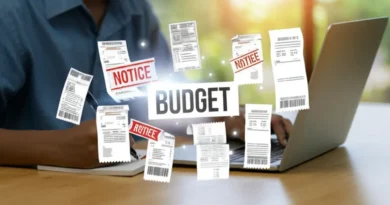The Most Common Budgeting Mistakes and How to Fix Them
Budgeting can be a daunting task for many individuals and families, yet it is a fundamental skill that can pave the way for financial stability and success. While many of us resolve to stick to our budgets, common pitfalls can derail even the best-laid plans. Let’s delve into the most frequent budgeting mistakes and explore how we can rectify them to achieve financial empowerment.
1. Not Having a Budget at All
One of the most glaring mistakes people make is simply not creating a budget. Without a budget, it’s nearly impossible to understand where your money is going or how to make adjustments to save more. The first step to rectify this is to start tracking your income and expenses. Use budgeting apps or even a simple spreadsheet to get a clear line of sight on your financial habits.
2. Setting Unrealistic Goals
Budgeting should be an achievable practice. It’s common for individuals to set overly ambitious goals, like saving 50% of their income. Such goals can lead to frustration and failure, ultimately causing them to abandon the budgeting process altogether. Instead, set incremental, realistic goals that allow for flexibility. For instance, aim for a 10% savings rate at first, and gradually increase it as you become comfortable with your budgeting skills.
3. Ignoring Irregular Expenses
It’s easy to create a budget focusing solely on fixed monthly expenses like rent or utilities, but this can lead to serious shortfalls later. Irregular expenses—such as car maintenance, medical bills, or seasonal costs like holiday shopping—can wreak havoc on your budget if not accounted for. Build these irregular expenses into your budget by assessing your historical spending patterns. Allocate a small percentage of your income each month to a “sinking fund” specifically for these irregular costs.
4. Not Tracking Spending
A budget is only as good as the tracking you do after you set it. Many people fail to monitor their budgeting performance, leading to overspending and missing out on savings goals. To combat this, make it a habit to check your spending weekly or biweekly. Review and categorize your transactions to gain insights into your spending patterns. This vigilance helps to identify areas where you might be overspending and can motivate you to adjust accordingly.
5. Neglecting to Adjust Your Budget
Your financial situation might change due to various life events—job changes, moving, or changes in family status—and so should your budget. Many people make the mistake of creating a budget but fail to revise it as circumstances change. Regularly revisit your budget, at least quarterly, and make necessary adjustments. This keeps you aligned with your financial goals regardless of changes in income or expenses.
6. Disregarding Small Expenses
It’s easy to think that small, daily expenditures—like coffee runs, snacks, or subscription services—can be overlooked. However, they can add up quickly and drain your budget. Track these small purchases meticulously. Consider using a budgeting method known as the 50/30/20 rule, which allocates 50% of your income to necessities, 30% to wants, and 20% to savings. This will help you realize that even minor expenses need to be accounted for, allowing better control over your finances.
7. Failure to Plan for Emergencies
Life is unpredictable. Perhaps you’ll face unforeseen medical expenses, car repairs, or sudden job loss. Not budgeting for emergencies can result in stress and financial strain. Establish an emergency fund by allocating funds specifically for these situations. A rule of thumb is to have three to six months’ worth of living expenses set aside. This safety net gives you peace of mind and can effectively prevent you from derailing your budgeting efforts.
8. Overcomplicating the Budgeting Process
Budgeting tools and methods abound, many of which can be overly complex. Many individuals believe they need to follow a specific method to the letter, but this can lead to frustration. Choose a method that feels comfortable and makes sense for your situation. Basic categories for income and expenses are often enough to keep you on track without overwhelming you.
In summary, budgeting is a crucial aspect of personal finance that can make or break your financial success. By understanding these common mistakes and implementing strategies to avoid them, you are setting yourself up for better financial health and stability. Remember, consistent evaluation and adjustment of your budget will help you stay on track towards your financial goals.




